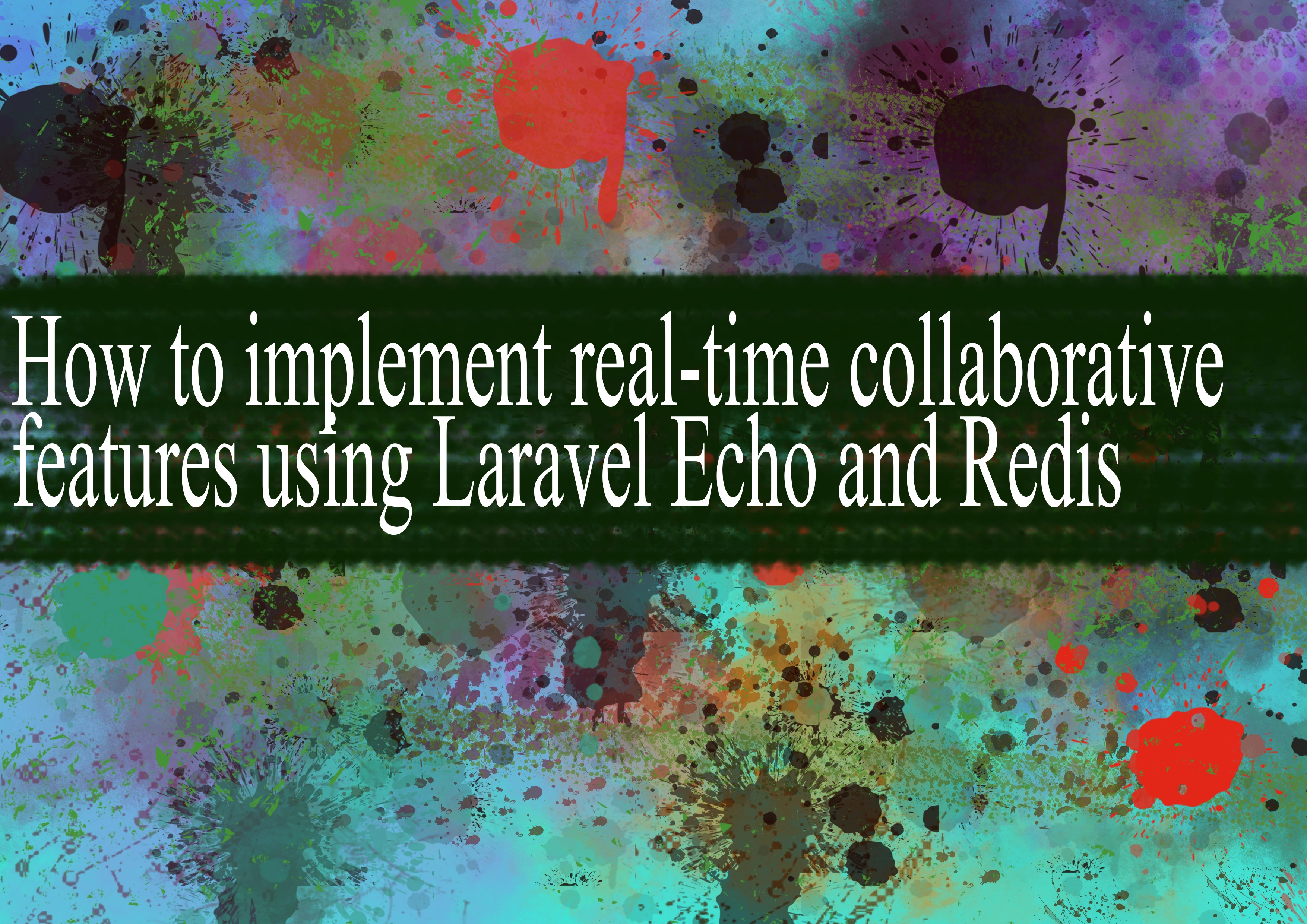How to implement real-time collaborative features using Laravel Echo and Redis

Implementing real-time collaborative features using Laravel Echo and Redis involves setting up a system for broadcasting events and handling them in real-time across multiple connected clients. Laravel Echo is a JavaScript library that makes it easy to subscribe to channels and listen for events broadcasted by Laravel's broadcasting system. Redis is used as the broadcasting driver to efficiently broadcast events to multiple servers.
Here are the general steps to implement real-time collaboration using Laravel Echo and Redis:
Step 1: Set Up Laravel Echo and Redis
1. Install Laravel Echo and Pusher (or another broadcasting driver) via Composer:
bashcomposer require pusher/pusher-php-serverLaravel Echo supports several broadcasting drivers, but for this example, we'll use Pusher.
2. Set up your Pusher credentials in the
.envfile:dotenvBROADCAST_DRIVER=pusher PUSHER_APP_ID=your-app-id PUSHER_APP_KEY=your-app-key PUSHER_APP_SECRET=your-app-secret PUSHER_APP_CLUSTER=your-app-cluster3. Install the Laravel Echo npm package:
bashnpm install --save laravel-echo pusher-jsConfigure Laravel Echo in your
resources/js/bootstrap.jsfile:javascriptimport Echo from 'laravel-echo'; window.Pusher = require('pusher-js'); window.Echo = new Echo({ broadcaster: 'pusher', key: process.env.MIX_PUSHER_APP_KEY, cluster: process.env.MIX_PUSHER_APP_CLUSTER, encrypted: true, });Run
npm run devto compile your assets.
Step 2: Broadcasting Events
1. Create an event using Artisan:
bashphp artisan make:event CollaborationEvent2. Define the event in the
CollaborationEventclass.php// app/Events/CollaborationEvent.php class CollaborationEvent implements ShouldBroadcast { public $data; public function __construct($data) { $this->data = $data; } public function broadcastOn() { return new Channel('collaboration-channel'); } }
Step 3: Broadcasting Events
Broadcast the event from your controller, model, or wherever you need it:
php// app/Http/Controllers/CollaborationController.php
use App\Events\CollaborationEvent;
public function broadcastCollaborationEvent($data)
{
broadcast(new CollaborationEvent($data));
// Additional logic...
}
Step 4: Listening to Events
In your frontend JavaScript code, use Laravel Echo to listen for events:
javascript// resources/js/app.js
window.Echo.channel('collaboration-channel').listen('CollaborationEvent', (event) => {
console.log(event.data);
// Handle the event data...
});
Additional Links
- 1. Laravel Echo Documentation
- 2. Pusher Documentation
- 3. Laravel Broadcasting Events
- 4. Real-time Laravel with Laravel Echo and Pusher
- 5. Broadcasting with Laravel Echo and Vue.js
Make sure to adapt the examples to your specific use case, and consider security measures, such as authorization and presence channels, depending on your application's requirements.
=== Happy Coding :)
-
Popular Post
- How to optimize for Google's About This Result feature for local businesses
- How to implement multi-language support in an Express.js application
- How to handle and optimize for changes in mobile search behavior
- How to handle CORS in a Node.js application
- How to use Vue.js with a UI framework (e.g., Vuetify, Element UI)
- How to configure Laravel Telescope for monitoring and profiling API requests
- How to create a command-line tool using the Commander.js library in Node.js
- How to implement code splitting in a React.js application
- How to use the AWS SDK for Node.js to interact with various AWS services
- How to use the Node.js Stream API for efficient data processing
- How to implement a cookie parser middleware in Node.js
- How to implement WebSockets for real-time communication in React
-
Latest Post
- How to implement a dynamic form with dynamic field styling based on user input in Next.js
- How to create a custom hook for handling user interactions with the browser's device motion in Next.js
- How to create a custom hook for handling user interactions with the browser's battery status in Next.js
- How to implement a dynamic form with dynamic field visibility based on user input in Next.js
- How to implement a dynamic form with real-time collaboration features in Next.js
- How to create a custom hook for handling user interactions with the browser's media devices in Next.js
- How to use the useSWRInfinite hook for paginating data with a custom loading indicator in Next.js
- How to create a custom hook for handling user interactions with the browser's network status in Next.js
- How to create a custom hook for handling user interactions with the browser's location in Next.js
- How to implement a dynamic form with multi-language support in Next.js
- How to create a custom hook for handling user interactions with the browser's ambient light sensor in Next.js
- How to use the useHover hook for creating interactive image zoom effects in Next.js